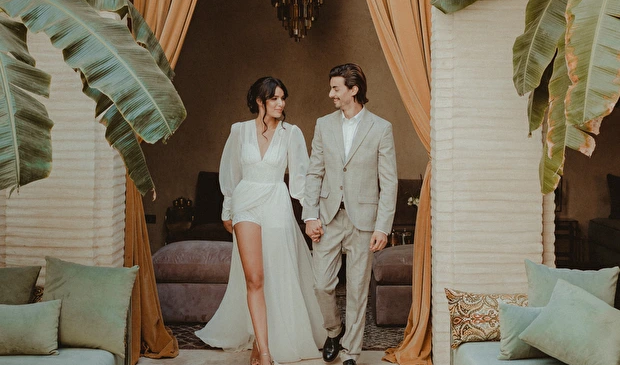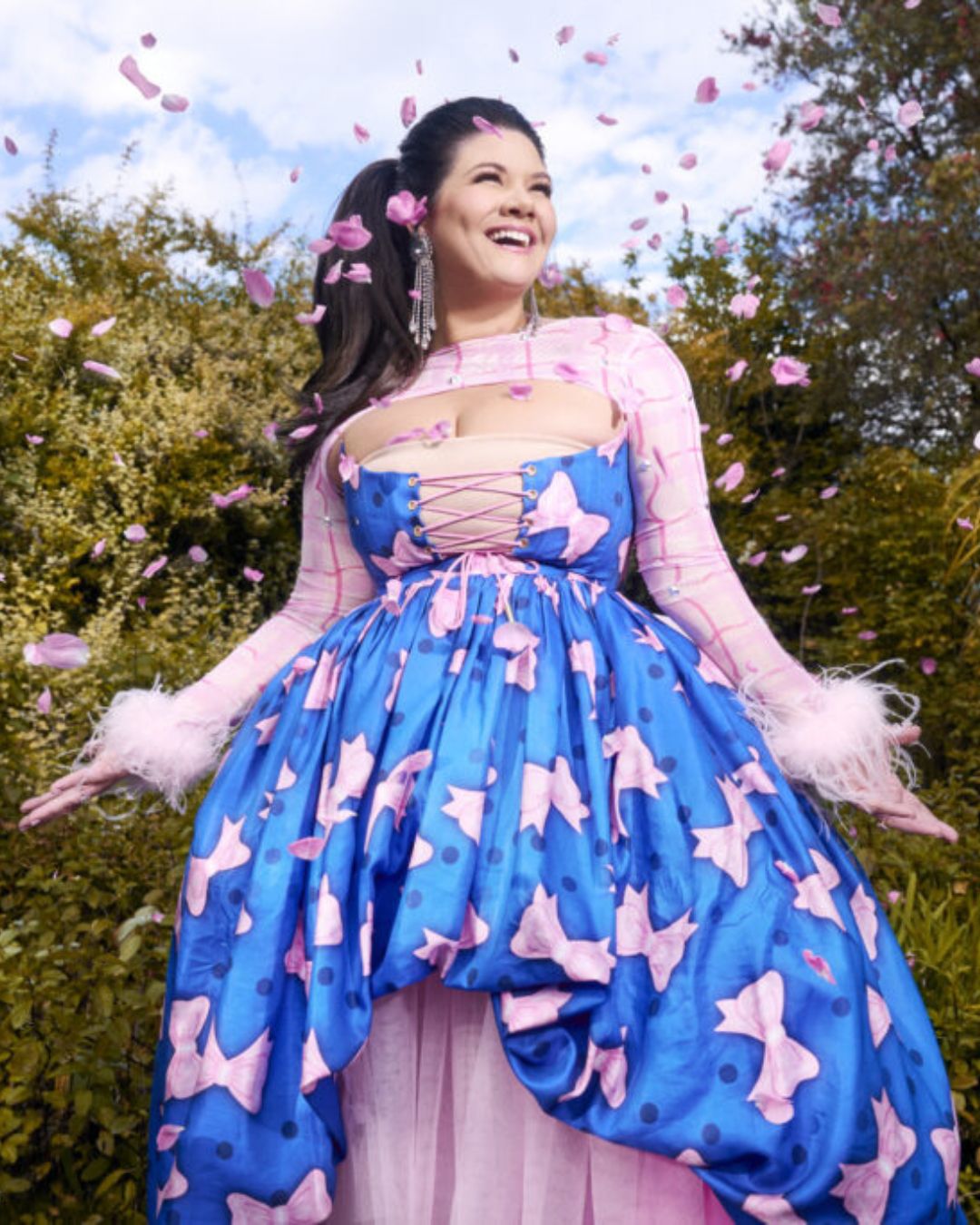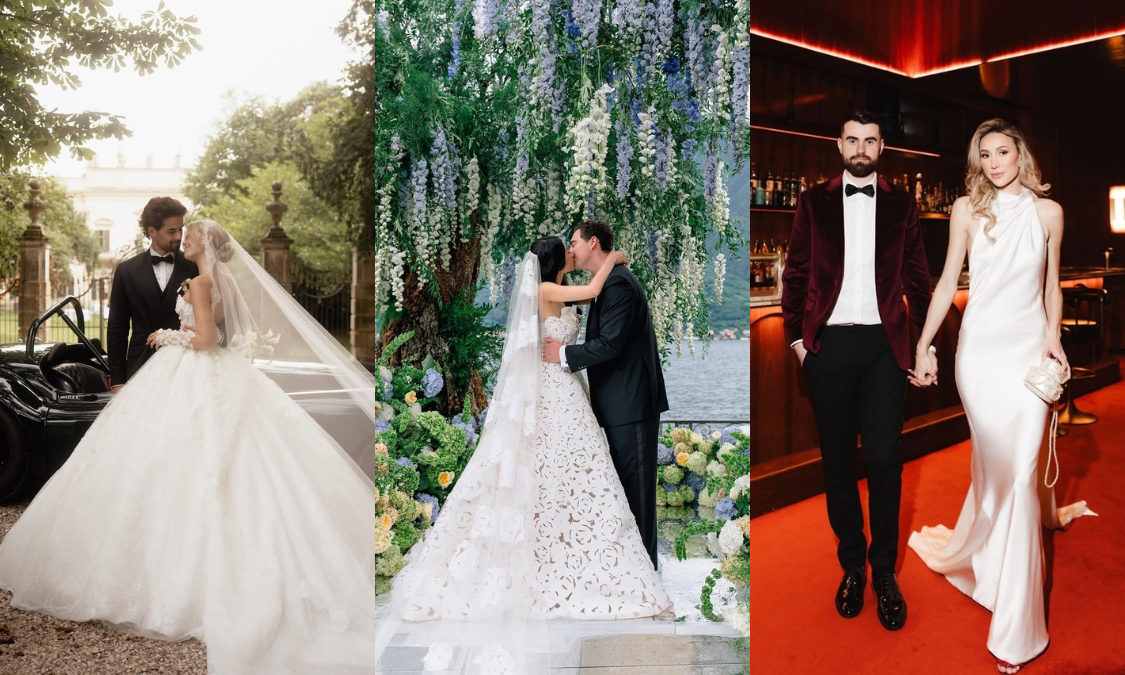Planning a destination wedding in Morocco, one of the best destination countries for a memorable wedding, can be an exciting and unforgettable experience. From the vibrant cities to the enchanting landscapes, Morocco offers a captivating setting for your special day. However, organizing a wedding from overseas requires careful research, organization, and communication. In this guide, we will walk you through the step-by-step process of planning a destination wedding in Morocco, ensuring that your celebration is everything you’ve dreamed of and more.
How to Plan a Destination Wedding in Morocco if You’re Overseas
1. Research and Choose Your Ideal Location
Photo by Giuseppe Marano and Monica Leggio
Morocco is a diverse country with various stunning locations for your wedding. Research different regions and cities such as Marrakech, Casablanca, Fez, Essaouira, and the Atlas Mountains. Consider the scenery, accessibility, and local attractions to determine which location aligns with your vision for the wedding.
2. Find the Perfect Venue
Morocco offers a wide array of unique venues to choose from. Here are five popular types of venues to consider:
Photo from Veronica Onofri Photography
- Riads: These traditional Moroccan houses offer an intimate and authentic atmosphere, often featuring stunning courtyards, intricate tilework, and lush gardens.
- Palaces: For a grand and luxurious affair, consider hosting your wedding at one of Morocco’s palaces, known for their opulent architecture and exquisite details.
- Beachfront Resorts: If you dream of a seaside wedding, Morocco’s coastal resorts provide a picturesque backdrop, with beautiful beaches and stunning views of the ocean.
- Desert Camps: Embrace the allure of the desert with a wedding held in a luxury camp. Imagine exchanging vows under the starry sky amidst the golden dunes.
- Boutique Hotels: Morocco is known for its charming boutique hotels that blend modern comforts with traditional aesthetics. These venues offer a more intimate setting and personalized service.
3. Choose the Ideal Season
Morocco experiences diverse climates, so selecting the right season is crucial. The popular seasons for weddings are:
Photo from Veronica Onofri Photography
- Spring (March to May): Pleasant temperatures, blooming landscapes, and vibrant festivals make it an ideal time for a wedding.
- Autumn (September to November): Mild temperatures, fewer crowds, and beautiful fall colors create a romantic ambiance for your celebration.
- Winter (December to February): While cooler, Morocco’s winter is still relatively mild, and it offers a unique charm, especially in cities like Marrakech.
4. Set a Realistic Budget
To plan your destination wedding effectively, establish a realistic budget that considers all aspects of the event. Here are some estimated/average costs per vendor in Morocco (subject to variation):
Photo by Giuseppe Marano and Monica Leggio
- Venue: $5,000 – $15,000
- Catering: $50 – $150 per person
- Photography/Videography: $2,000 – $7,000
- Floral and Decor: $2,000 – $10,000
- Wedding Planner: 10% – 20% of the total wedding budget
5. Hire a Wedding Planner
Photo by Maria Rao Photography
Engaging a local wedding planner who specializes in destination weddings is essential. They will assist you in navigating the logistics, language barriers, and cultural nuances, ensuring a smooth planning process and a stress-free wedding day.
6. Understand Legal Requirements
Before your wedding, familiarize yourself with the legal requirements in Morocco. While specific requirements may vary, here are some common ones:
- Valid passports
- Birth certificates
- Certificate of no impediment (a document proving that you are legally free to marry)
- Legalized translations of documents
- Residency requirements (check with local authorities)
7. Plan Well in Advance
Given the distance and cultural differences, it’s crucial to start planning well in advance. Secure your venue, book vendors, and communicate with your wedding planner at least 12 to 18 months before your desired wedding date.
8. Communicate with Vendors
Photo by Giuseppe Marano and Monica Leggio
Maintaining open lines of communication with your vendors is vital. Utilize email, video calls, and a wedding planner as an intermediary to discuss your requirements, share inspirations, and ensure everyone is on the same page.
9. Cultural Sensitivity and Incorporating Moroccan Cuisine, Culture, and Tradition:
Embrace the rich Moroccan culture by incorporating elements into your wedding festivities. Consider:
Photo by Maria Rao Photography
- Traditional Moroccan cuisine: Treat your guests to a feast of delicious tagines, couscous, pastries, and mint tea.
- Moroccan music and entertainment: Hire local musicians, belly dancers, or traditional Gnawa performers to create an unforgettable experience.
- Henna ceremony: Include a traditional henna ceremony as part of your pre-wedding celebrations, where intricate henna designs are applied to the hands of the bride and her guests.
10. Plan Guest Accommodations and Travel
Help your guests have a seamless experience by providing information on accommodations and travel options. Consider booking room blocks at hotels or providing recommendations for various budget ranges. Arrange airport transfers or provide detailed instructions for local transportation.
11. Plan Activities and Excursions
Make your destination wedding in Morocco even more memorable by organizing activities and excursions for your guests. Here are five examples:
Photo from Helene Sula
- Atlas Mountains excursion: Take your guests on a journey through the stunning mountain landscapes, visit Berber villages, and enjoy panoramic views.
- Medina tour: Explore the vibrant and bustling markets of Moroccan cities, where guests can shop for unique souvenirs.
- Sahara Desert adventure: Plan a desert safari, camel trek, or even a night in a luxury desert camp for a truly unforgettable experience.
- Cooking class: Organize a Moroccan cooking class where guests can learn to prepare traditional dishes like couscous and pastilla.
- Hammam spa experience: Treat your guests to a traditional Moroccan hammam spa session, providing relaxation and rejuvenation.




